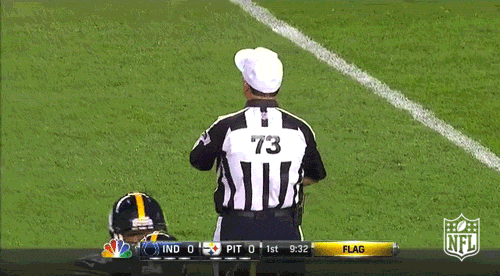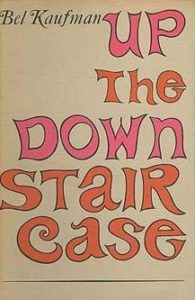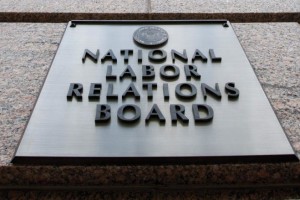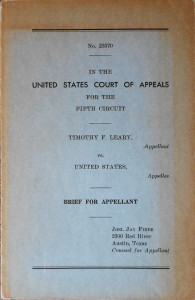 In Howard v. Maxum Indemnity Co., “Howard’s appeal raises as a central, threshold question whether he waived application of Oklahoma law” in an insurance dispute. Unfortunately, “[a]lthough Howard did raise the choice of law issue in his Rule 59(e) motion, ‘this court will typically not consider an issue or a new arugment raised for the first time in a motion for reconsideration in the district court.’ . . . ‘Parties generally are bound by the theory of law they argue in the district court, absent some manifest injustice.'” No. 16-11746 (Dec. 13, 2017).
In Howard v. Maxum Indemnity Co., “Howard’s appeal raises as a central, threshold question whether he waived application of Oklahoma law” in an insurance dispute. Unfortunately, “[a]lthough Howard did raise the choice of law issue in his Rule 59(e) motion, ‘this court will typically not consider an issue or a new arugment raised for the first time in a motion for reconsideration in the district court.’ . . . ‘Parties generally are bound by the theory of law they argue in the district court, absent some manifest injustice.'” No. 16-11746 (Dec. 13, 2017).
Category Archives: Appellate Procedure
 A premature notice of appeal is certainly better than nothing, but may not be enough, as the Fifth Circuit noted in Johnson v. Real Estate Mortgage Network, Inc.: “Before we address Johnson’s contentions on appeal, we note that Johnson’s notice of appeal from the summary judgment dismissing the claims against some, but not all, of the defendants, was premature. Nevertheless, because the district court could have certified that the summary judgment was appealable, and it subsequently entered a final judgment, the notice of appeal gives us appellate jurisdiction over the summary judgment. However, because Johnson did not file a notice of appeal from the final judgment, which dismissed his remaining claims against REMNI/Homebridge, we do not have jurisdiction to consider the dismissal of his claims against REMNI/Homebridge.” No. 17-20347 (Dec. 1, 2017, unpublished).
A premature notice of appeal is certainly better than nothing, but may not be enough, as the Fifth Circuit noted in Johnson v. Real Estate Mortgage Network, Inc.: “Before we address Johnson’s contentions on appeal, we note that Johnson’s notice of appeal from the summary judgment dismissing the claims against some, but not all, of the defendants, was premature. Nevertheless, because the district court could have certified that the summary judgment was appealable, and it subsequently entered a final judgment, the notice of appeal gives us appellate jurisdiction over the summary judgment. However, because Johnson did not file a notice of appeal from the final judgment, which dismissed his remaining claims against REMNI/Homebridge, we do not have jurisdiction to consider the dismissal of his claims against REMNI/Homebridge.” No. 17-20347 (Dec. 1, 2017, unpublished).
 In an insurance coverage dispute, the district court granted both sides’ motions for summary judgment as to the meaning of various policy terms. The net result was final judgment for the insurance company. The insured appealed; the insurer cross-appealed, and on that procedural point, the Fifth Circuit held that the cross-appeal was unnecessary, noting:
In an insurance coverage dispute, the district court granted both sides’ motions for summary judgment as to the meaning of various policy terms. The net result was final judgment for the insurance company. The insured appealed; the insurer cross-appealed, and on that procedural point, the Fifth Circuit held that the cross-appeal was unnecessary, noting:
- “National Union is conflating the district court’s opinion (i.e., the order) with its judgment. Appellate courts review judgments, not opinions. . . . To the extent that the district court rejected the arguments in National Union’s cross-appeal, ‘an appellee may urge any ground available in support of a judgment even if that ground was . . . rejected by the trial court.'” (citations omitted);
- The recent case of ART Midwest v. Atlantic Limited Partnership XII,742 F.3d 206 (5th Cir. 2014), in which a party was not allowed to raise certain issues after not taking a cross-appeal, was distinguishable because judgment had actually been entered against that party on those issues. “Here,there is no adverse judgment against National Union, such that it might need to protect its rights—just some adverse reasoning”; and
- “This is not just formalism. ‘A cross-appeal filed for the sole purpose of advancing additional arguments in support of a judgment is “worse than unnecessary”, because it disrupts the briefing schedule, increases the number (and usually the length) of briefs, and tends to confuse the issues.’ . . . In this case, National Union’s improper cross-appeal resulted in an over-length opposition brief and an additional reply (giving National Union over four thousand words of additional briefing).” (citations omitted)
Cooper Indus. v. Nat’l Union Fire Ins. Co., No. 16-20539 (revised Dec. 11, 2017).
 In a 2-1 decision, the Fifth Circuit found that Ezekiel Elliott failed to exhaust remedies within the NFL’s dispute-resolution process before filing suit, meaning that the federal courts lacked subject matter jurisdiction over his complaints. A dissent found a sufficient question about the adequacy of the process to justify the exercise of jurisdiction under the relevant authorities. NFLPA v. NFL, No. 17-40936 (Oct. 12, 2017). While of enormous interest to Cowboys fans, so far as arbitration goes, the opinion is centered on issues unique to collective bargaining agreements.
In a 2-1 decision, the Fifth Circuit found that Ezekiel Elliott failed to exhaust remedies within the NFL’s dispute-resolution process before filing suit, meaning that the federal courts lacked subject matter jurisdiction over his complaints. A dissent found a sufficient question about the adequacy of the process to justify the exercise of jurisdiction under the relevant authorities. NFLPA v. NFL, No. 17-40936 (Oct. 12, 2017). While of enormous interest to Cowboys fans, so far as arbitration goes, the opinion is centered on issues unique to collective bargaining agreements.
 The high-profile dispute between Dallas Cowboys star Ezekiel Elliott and the NFL Players’ Association, on the one hand, and the NFL on the other, has reached the Fifth Circuit after the district court’s grant of a preliminary injunction against Elliott’s suspension by the league. The NFL has moved for an interim stay; the successful plaintiffs have responded; and a motions panel of the Court will consider that issue in the week ahead.
The high-profile dispute between Dallas Cowboys star Ezekiel Elliott and the NFL Players’ Association, on the one hand, and the NFL on the other, has reached the Fifth Circuit after the district court’s grant of a preliminary injunction against Elliott’s suspension by the league. The NFL has moved for an interim stay; the successful plaintiffs have responded; and a motions panel of the Court will consider that issue in the week ahead.
 In AMA Discount, Inc. v. Seneca Specialty Ins. Co., the Fifth Circuit rejected an interlocutory appeal on a question of bad faith claims handling under Louisiana insurane law, noting that a potentially conflicting district court decision had recently settled on appeal, and the parties actually disputed the application of law to fact rather than the controlling legal standard. The Court acknowledged that this ruling differed from that of a prior motions panel, but observered that at this stage, the case “has the benefit of full briefing and a completed record.” The Court concluded: “Perhaps an interlocutory certification would ‘materially advance the termination’ of this litigation. If that were the decisive question, of course, there would be few roadblocks to interlocutory appeals of legal issues.” No. 16-31158 (Sept. 11, 2017, unpublished).
In AMA Discount, Inc. v. Seneca Specialty Ins. Co., the Fifth Circuit rejected an interlocutory appeal on a question of bad faith claims handling under Louisiana insurane law, noting that a potentially conflicting district court decision had recently settled on appeal, and the parties actually disputed the application of law to fact rather than the controlling legal standard. The Court acknowledged that this ruling differed from that of a prior motions panel, but observered that at this stage, the case “has the benefit of full briefing and a completed record.” The Court concluded: “Perhaps an interlocutory certification would ‘materially advance the termination’ of this litigation. If that were the decisive question, of course, there would be few roadblocks to interlocutory appeals of legal issues.” No. 16-31158 (Sept. 11, 2017, unpublished).
 The panel majority in Veasey v. Abbott concluded that a stay was warranted during the appeal of an injunction against certain “voter ID” laws, focusing on the likelihood-of-success element of the standard four-part test: “As the State explains, each of the 27 voters identified – whose testimony the plaintiffs used to support their discriminatory-effect claim – can vote without impediment under SB 5. The State has made a strong showing that htis reasonable-impediment procedure remedies plaintiffs’ alleged harm and thus forecloses plaintiffs’ injunctive relief.”
The panel majority in Veasey v. Abbott concluded that a stay was warranted during the appeal of an injunction against certain “voter ID” laws, focusing on the likelihood-of-success element of the standard four-part test: “As the State explains, each of the 27 voters identified – whose testimony the plaintiffs used to support their discriminatory-effect claim – can vote without impediment under SB 5. The State has made a strong showing that htis reasonable-impediment procedure remedies plaintiffs’ alleged harm and thus forecloses plaintiffs’ injunctive relief.”- A dissent disagreed as to the elements of the four-part test, and the overrarching
 concept of “preserving the status quo”: “Neither side would be irreparably harmed by continuing to operate under the same election procedures they have been operating under for more than a year. If a stay is granted at all, then it should be comprehensive. In other words, the correct approach would be to stay both the district court’s order and the new legislation.” No. 17-40884 (Sept. 5, 2017).
concept of “preserving the status quo”: “Neither side would be irreparably harmed by continuing to operate under the same election procedures they have been operating under for more than a year. If a stay is granted at all, then it should be comprehensive. In other words, the correct approach would be to stay both the district court’s order and the new legislation.” No. 17-40884 (Sept. 5, 2017).
 Duggan, an non-named member of a class certified under Fed. R. Civ. P. 23(b)(1), made an untimely objection to the fairness of the class settlement. While he was not a named party, he sought to appeal under the doctrine recognized by Devlin v. Scardelletti, 536 U.S. 1 (2002), which allowed non-named class members “who have objected in a timely manner to approval of the settlement at the fairness hearing have the power to bring an appeal without first intervening.” Unfortunately for Duggan, the Fifth Circuit found no reason to excuse his late objection, in particular rejecting the argument that his opponent was required to move to strike the objection in district court as a prerequisite to arguing waiver on appeal. Farber v. Crestwood Midstream Partners LP , No. 16-20742 (July 17, 2017).
Duggan, an non-named member of a class certified under Fed. R. Civ. P. 23(b)(1), made an untimely objection to the fairness of the class settlement. While he was not a named party, he sought to appeal under the doctrine recognized by Devlin v. Scardelletti, 536 U.S. 1 (2002), which allowed non-named class members “who have objected in a timely manner to approval of the settlement at the fairness hearing have the power to bring an appeal without first intervening.” Unfortunately for Duggan, the Fifth Circuit found no reason to excuse his late objection, in particular rejecting the argument that his opponent was required to move to strike the objection in district court as a prerequisite to arguing waiver on appeal. Farber v. Crestwood Midstream Partners LP , No. 16-20742 (July 17, 2017).
 Litigation continues on the Texas tollroads, most recently producing a defamation lawsuit in BancPass v. Highway Toll Administration LLC, arising from letters sent by a company’s competitors to Google and Apple. The defendant unsuccessfully argued that the letters were immune from liability by the Texas privilege associated with court proceedings.
Litigation continues on the Texas tollroads, most recently producing a defamation lawsuit in BancPass v. Highway Toll Administration LLC, arising from letters sent by a company’s competitors to Google and Apple. The defendant unsuccessfully argued that the letters were immune from liability by the Texas privilege associated with court proceedings.
Before the Fifth Circuit, matters began well for the defendant – the Court concluded (1) that an immediate interlocutory appeal was allowed because the Texas privilege protects from suit, not just liability, and (2) while “[c]ertainly, the district court expressed its displeasure” at this issue arising late in the proceedings, it did not formally certify the appeal as frivolous (and thus avoided a line of cases that would otherwise have undermined defendant’s appeal right). But on the merits:
 “Texas caselaw is clear that our analysis must focus on the connection between the communications and the specific legal action HTA now claims that it was contemplating, rather than legal action more broadly. The letters to Google and Apple in particular put forward bare accusations of unlawful conduct that was unrelated to HTA’s later tortious interference claim and that neither directly implicated HTA’s own legal rights nor constituted legal claims that HTA had any ability to pursue.”
“Texas caselaw is clear that our analysis must focus on the connection between the communications and the specific legal action HTA now claims that it was contemplating, rather than legal action more broadly. The letters to Google and Apple in particular put forward bare accusations of unlawful conduct that was unrelated to HTA’s later tortious interference claim and that neither directly implicated HTA’s own legal rights nor constituted legal claims that HTA had any ability to pursue.”
No. 16-51073 (July 13, 2017).
 At oral argument, the appellant in a technical dispute about the appointment of arbitrators “argued for the first time that ‘if maritime jurisdiction applies, then . . . there is appellate jurisdiction over the appeal.'” The Fifth Circuit observed: “We do not usually allow parties to raise a new argument for the first time at oral argument. . . . Of course, an argument that this court lacks jurisdiction cannot be waived, but here the argument is that the court has jurisdiction, a matter the appellant is required to prove.” Bordelon Marine, LLC v. Bibby Subsea ROV, LLC, No. 16-30847 (April 14, 2017, unpublished).
At oral argument, the appellant in a technical dispute about the appointment of arbitrators “argued for the first time that ‘if maritime jurisdiction applies, then . . . there is appellate jurisdiction over the appeal.'” The Fifth Circuit observed: “We do not usually allow parties to raise a new argument for the first time at oral argument. . . . Of course, an argument that this court lacks jurisdiction cannot be waived, but here the argument is that the court has jurisdiction, a matter the appellant is required to prove.” Bordelon Marine, LLC v. Bibby Subsea ROV, LLC, No. 16-30847 (April 14, 2017, unpublished).
 In Smitherman v. Bayview Loan Servicing LLC, the Fifth Circuit order a limited remand to the district court, so that court could supplement the record about the defendant’s citizenship and then make findings. The district court, however, went on to vacate the judgment it had entered previously and remand the case to state court. The Fifth Circuit observed: “Because the district court lacked the authority to do so, we construe it[]s order to be an indicative ruling made pursuant to Federal Rule of Civil Procedure 62.1(a)(2). Accordingly, we REMAND this case to the district court and DISMISS the appeal as moot and relinquish jurisdiction pursuant to Federal Rule of Appellate Procedure 12.1(b).” No. 16-20328 (March 29, 2017, unpublished).
In Smitherman v. Bayview Loan Servicing LLC, the Fifth Circuit order a limited remand to the district court, so that court could supplement the record about the defendant’s citizenship and then make findings. The district court, however, went on to vacate the judgment it had entered previously and remand the case to state court. The Fifth Circuit observed: “Because the district court lacked the authority to do so, we construe it[]s order to be an indicative ruling made pursuant to Federal Rule of Civil Procedure 62.1(a)(2). Accordingly, we REMAND this case to the district court and DISMISS the appeal as moot and relinquish jurisdiction pursuant to Federal Rule of Appellate Procedure 12.1(b).” No. 16-20328 (March 29, 2017, unpublished).
 It is well-settled nationally that “an appellate court may not alter a judgment to benefit a nonappealing party” because “it takes a cross-appeal to justify a remedy in favor of an appellee.” Greenlaw v. United States, 554 U.S. 237, 244–45 (2008). The Fifth Circuit treats that principle as jurisdictional. See, e.g., Amazing Spaces, Inc. v. Metro Mini Storage, 608 F.3d 225, 250 (5th Cir. 2010) (“[T]his circuit follows the general rule that, in the absence of a cross-appeal, an appellate court has no jurisdiction to modify a judgment so as to enlarge the rights of the appellee or diminish the rights of the appellant.”) Some other Circuits, however, take a different view. See, e.g., Am. Roll-On Roll-Off Carrier LLC v. P&O Parts Baltimore, Inc., 479 F.3d 288, 295 (4th Cir. 2007) (“This circuit views the cross-appeal requirement as one of practice, rather than as a strict jurisdictional requirement.”) (Thanks to my LPCH colleague Russ Herman for pointing this out.)
It is well-settled nationally that “an appellate court may not alter a judgment to benefit a nonappealing party” because “it takes a cross-appeal to justify a remedy in favor of an appellee.” Greenlaw v. United States, 554 U.S. 237, 244–45 (2008). The Fifth Circuit treats that principle as jurisdictional. See, e.g., Amazing Spaces, Inc. v. Metro Mini Storage, 608 F.3d 225, 250 (5th Cir. 2010) (“[T]his circuit follows the general rule that, in the absence of a cross-appeal, an appellate court has no jurisdiction to modify a judgment so as to enlarge the rights of the appellee or diminish the rights of the appellant.”) Some other Circuits, however, take a different view. See, e.g., Am. Roll-On Roll-Off Carrier LLC v. P&O Parts Baltimore, Inc., 479 F.3d 288, 295 (4th Cir. 2007) (“This circuit views the cross-appeal requirement as one of practice, rather than as a strict jurisdictional requirement.”) (Thanks to my LPCH colleague Russ Herman for pointing this out.)
 In Netsch v. Sherman, the appellants’ counsel missed the 14-day deadline for an appeal from bankruptcy court. The district court denied relief and the Fifth Circuit affirmed; while noting that all relevant factors were either neutral or favored appellants, it concluded:”[T]he bankruptcy court concluded that the reason for the delay weighed strongly against finding excusable neglect. In its analysis of this factor, the bankruptcy court emphasized that the parties had been subject to the Federal Rules of Bankruptcy Procedure throughout the adversary proceeding, these rules were unambiguous, and Appellants’ counsel confused the Federal Rules of Bankruptcy Procedure with the Federal Rules of Civil Procedure. The bankruptcy court also indicated that confusing bankruptcy procedure with civil procedure does not constitute excusable neglect. Consequently, the court held that the reason for the delay should be given greater weight than other factors.” No. 16-10432 (Dec. 22, 2016, unpublished).
In Netsch v. Sherman, the appellants’ counsel missed the 14-day deadline for an appeal from bankruptcy court. The district court denied relief and the Fifth Circuit affirmed; while noting that all relevant factors were either neutral or favored appellants, it concluded:”[T]he bankruptcy court concluded that the reason for the delay weighed strongly against finding excusable neglect. In its analysis of this factor, the bankruptcy court emphasized that the parties had been subject to the Federal Rules of Bankruptcy Procedure throughout the adversary proceeding, these rules were unambiguous, and Appellants’ counsel confused the Federal Rules of Bankruptcy Procedure with the Federal Rules of Civil Procedure. The bankruptcy court also indicated that confusing bankruptcy procedure with civil procedure does not constitute excusable neglect. Consequently, the court held that the reason for the delay should be given greater weight than other factors.” No. 16-10432 (Dec. 22, 2016, unpublished).
 Johnson-Williams sued MERS about a foreclosure. She lost a Rule 12(b)(6) motion filed by MERS, then her own motion for leave to amend, and finally a motion for reconsideration. She appealed, and the Fifth Circuit observed the limited scope of her appeal, as the notice referred only to the district court’s order as to the amendment. Johnson-Williams v. MERS, No. 16-10276 (Jan. 4, 2017, unpublished).
Johnson-Williams sued MERS about a foreclosure. She lost a Rule 12(b)(6) motion filed by MERS, then her own motion for leave to amend, and finally a motion for reconsideration. She appealed, and the Fifth Circuit observed the limited scope of her appeal, as the notice referred only to the district court’s order as to the amendment. Johnson-Williams v. MERS, No. 16-10276 (Jan. 4, 2017, unpublished).
 In a dispute about a home loan, the district court wrote an opinion found for the defendant mortgage servicer in all respects, including its counterclaim for judicial foreclosure. The final judgment, unfortunately, did not address that claim or otherwise contain “catch-all” language. Because “[t]he district court’s ‘final judgment’ neither adjudicates ‘all claims . . . of all parties,’ nor expressly styles itself as a partial final judgment pursuant to Rule 54(b). . . . this Court has no appellate jurisdiction and cannot review the merits of the case.” Wease v. Ocwen Loan Servicing LLC, No. 16-10521 (Dec. 29, 2016, unpublished).
In a dispute about a home loan, the district court wrote an opinion found for the defendant mortgage servicer in all respects, including its counterclaim for judicial foreclosure. The final judgment, unfortunately, did not address that claim or otherwise contain “catch-all” language. Because “[t]he district court’s ‘final judgment’ neither adjudicates ‘all claims . . . of all parties,’ nor expressly styles itself as a partial final judgment pursuant to Rule 54(b). . . . this Court has no appellate jurisdiction and cannot review the merits of the case.” Wease v. Ocwen Loan Servicing LLC, No. 16-10521 (Dec. 29, 2016, unpublished).
 While the Court did address the merits, and its enthusiasm for the appeal was tempered by the many cases brought to it about the BP Deepwater Horizon settlement, the Fifth Circuit offered this cautionary note about briefing the standard of review: “Bailey’s opening brief skips this step — it does not acknowledge the standard of review, and offers no arguments to show that the district court abused its discretion. Bailey therefore has waived an issue necessary to the success of the appeal.” Claimant v. BP Exploration & Production, No. 16-30642 (Dec. 13, 2016, unpublished).
While the Court did address the merits, and its enthusiasm for the appeal was tempered by the many cases brought to it about the BP Deepwater Horizon settlement, the Fifth Circuit offered this cautionary note about briefing the standard of review: “Bailey’s opening brief skips this step — it does not acknowledge the standard of review, and offers no arguments to show that the district court abused its discretion. Bailey therefore has waived an issue necessary to the success of the appeal.” Claimant v. BP Exploration & Production, No. 16-30642 (Dec. 13, 2016, unpublished).
 The NLRB consistently holds that an agreement requiring arbitration of individual claims (and thus foreclosing class actions) violates federal labor law; the Fifth Circuit consistently reverses the NLRB on this point. After again reversing the NLRB and citing the Circuit’s “rule of orderliness” about deference to prior panel decisions, the Court noted the NLRB’s remarkably candid litigation position: “The Board concedes that this court has squarely rejected both of those decisions, and that our precedents necessitate rejecting its arguments here. The Board further acknowledges that it seeks to manufacture a circuit split in order to ‘facilitate Supreme Court review.'” Employers Resource v. NLRB, No. 16-60034 (Nov. 1, 2016, unpublished).
The NLRB consistently holds that an agreement requiring arbitration of individual claims (and thus foreclosing class actions) violates federal labor law; the Fifth Circuit consistently reverses the NLRB on this point. After again reversing the NLRB and citing the Circuit’s “rule of orderliness” about deference to prior panel decisions, the Court noted the NLRB’s remarkably candid litigation position: “The Board concedes that this court has squarely rejected both of those decisions, and that our precedents necessitate rejecting its arguments here. The Board further acknowledges that it seeks to manufacture a circuit split in order to ‘facilitate Supreme Court review.'” Employers Resource v. NLRB, No. 16-60034 (Nov. 1, 2016, unpublished).
 A group of optometrists won judgment against Wal-Mart for $1,395,400, consisting entirely of statutory penalties relating to Wal-Mart’s influence over their working hours. After withdrawing the initial panel opinion and then receiving answers to certified questions in Forte v. Wal-Mart Stores, Inc., No. 15-0146 (Tex. May 20, 2016), the Fifth Circuit again concluded that “the district court’s judgment regarding damages must be vacated; attorneys’ fees are the only matter that remains in the case.” Forte v. Wal-Mart Stores, Inc., No. 12-40854 (Oct. 27, 2016).
A group of optometrists won judgment against Wal-Mart for $1,395,400, consisting entirely of statutory penalties relating to Wal-Mart’s influence over their working hours. After withdrawing the initial panel opinion and then receiving answers to certified questions in Forte v. Wal-Mart Stores, Inc., No. 15-0146 (Tex. May 20, 2016), the Fifth Circuit again concluded that “the district court’s judgment regarding damages must be vacated; attorneys’ fees are the only matter that remains in the case.” Forte v. Wal-Mart Stores, Inc., No. 12-40854 (Oct. 27, 2016).
 Bonnie Pereida’s estate successfully brought RICO claims against a dealer in rare coins, arguing that it systematically deceived Ms. Pereida about the quality of the coins she bought from it. The Fifth Circuit agreed with the estate that the RICO claim survived her, finding that “RICO’s remedial purpose predominates” over its penal purposes. But, it reversed as to the proof of a “pattern of racketeering activity,” finding that the relevant time period was too short and did not qualify as “open-ended.” It noted that on remand, the plaintiff could potentially still elect a remedy in common-law fraud where this problem would not arise.
Bonnie Pereida’s estate successfully brought RICO claims against a dealer in rare coins, arguing that it systematically deceived Ms. Pereida about the quality of the coins she bought from it. The Fifth Circuit agreed with the estate that the RICO claim survived her, finding that “RICO’s remedial purpose predominates” over its penal purposes. But, it reversed as to the proof of a “pattern of racketeering activity,” finding that the relevant time period was too short and did not qualify as “open-ended.” It noted that on remand, the plaintiff could potentially still elect a remedy in common-law fraud where this problem would not arise.
During that analysis, the Court offered a telling general comment: “[Plaintiff] contends that the Defendants waived this challenge to the ‘pattern’ element by raising it for the first time in their motion for a new trial. It should have been raised, he argues, in a motion for summary judgment so he would have known that this was a contested issue. The argument says a lot about modern civil litigation in which summary judgment, rather than trial, has become the focus. But when a case does go to trial, the burden is on the plaintiff to prove every element.” Malvino v. Dellniversita, No. 15-41435 (Oct. 20, 2016) (emphasis added).
 Graves v. Colvin provides an exceptionally clear illustration of harmless error:
Graves v. Colvin provides an exceptionally clear illustration of harmless error:
- Graves challenged the Social Security Administration’s determination that she was not disabled.
- A regulation governing ALJ hearings on such matters provides: “Occupational evidence provided by a VE or VS [vocational expert or vocational specialist] generally should be consistent with the occupational information supplied by the DOT [“Dictionary of Occupational Titles”] . . . At the hearings level, as part of the adjudicator’s duty to fully develop the record, the adjudicator will inquire, on the record, as to whether or not there is such consistency.”
- Graves lost, and argued in court that the ALJ failed to ask this required question.
- But — “‘Procedural perfection in administrative proceedings is not required’ as long as ‘the substantial rights of a party have not been affected.’ Graves does not even attempt to show that the vocational expert’s testimony was actually inconsistent with the DOT. Nor has she otherwise demonstrated prejudice. Hence, the ALJ’s procedural error was harmless and does not warrant reversal.”
No. 16-10340 (Sept. 21, 2016).
 In Smith Group JJR, PLLC v. Forrest General Hospital, a dispute about an architect’s fee, the appellant argued that “the district court erred by considering extrinsic evidence bearing on the meaning of the term ‘actual contstruction cost’ in the parties’ agreement. This issue – the proper role of extrinsic evidence in determining the meaning of a contract, produces frequent litigation and frequent differences of opinion between district courts and the Fifth Circuit. Here, the
In Smith Group JJR, PLLC v. Forrest General Hospital, a dispute about an architect’s fee, the appellant argued that “the district court erred by considering extrinsic evidence bearing on the meaning of the term ‘actual contstruction cost’ in the parties’ agreement. This issue – the proper role of extrinsic evidence in determining the meaning of a contract, produces frequent litigation and frequent differences of opinion between district courts and the Fifth Circuit. Here, the  court found a waiver of these arguments before the trial court, reminding that “citing cases that may contain a useful argument is simply inadequate to preserve that argument for appeal; ‘to be preserved, an argument must be pressed, and not merely intimated.'” No. 16-60134 (Sept. 9, 2016, unpublished). (This post was picked as one of the top five of the week by the Appellate Advocacy blog on the Law Professor Blogs Network!)
court found a waiver of these arguments before the trial court, reminding that “citing cases that may contain a useful argument is simply inadequate to preserve that argument for appeal; ‘to be preserved, an argument must be pressed, and not merely intimated.'” No. 16-60134 (Sept. 9, 2016, unpublished). (This post was picked as one of the top five of the week by the Appellate Advocacy blog on the Law Professor Blogs Network!)
 In trademark and trade dress litigation be
In trademark and trade dress litigation be tween Diageo, the maker of Crown Royal (left) and Mexcor, who makes Texas Crown Club (right), Diageo stipulated that “Mexcor did not infringe its marks until Mexcor sold its very first Texas Crown Club bottle in a bag bearing the Texas Crown Club logo” during the fourth quarter of 2011. Despite this concession, the Fifth Circuit concluded that Mexcor was not entitled to judgment on related issues when it “failed to urge that these counterclaims be presented to the jury after the district court denied its motions for JMOL.” The Court went on to remand the permanent injunction against Mexcor for revisoin, noting that the injunctoin could not extend to a type of bag that Mexcor had established its legal entitledment to use, and observing as to the last, “catch-all” provision of the injunction: “We are hesitant to approve such open-ended language, particularly because in other contexts this court
tween Diageo, the maker of Crown Royal (left) and Mexcor, who makes Texas Crown Club (right), Diageo stipulated that “Mexcor did not infringe its marks until Mexcor sold its very first Texas Crown Club bottle in a bag bearing the Texas Crown Club logo” during the fourth quarter of 2011. Despite this concession, the Fifth Circuit concluded that Mexcor was not entitled to judgment on related issues when it “failed to urge that these counterclaims be presented to the jury after the district court denied its motions for JMOL.” The Court went on to remand the permanent injunction against Mexcor for revisoin, noting that the injunctoin could not extend to a type of bag that Mexcor had established its legal entitledment to use, and observing as to the last, “catch-all” provision of the injunction: “We are hesitant to approve such open-ended language, particularly because in other contexts this court  has held that such ‘obey the law’ injunction orders are not permitted.” Diageo North America, Inc. v. Mexcor, Inc., No 15-20630 (Sept. 2, 2016, unpublished). (The opinon also notes
has held that such ‘obey the law’ injunction orders are not permitted.” Diageo North America, Inc. v. Mexcor, Inc., No 15-20630 (Sept. 2, 2016, unpublished). (The opinon also notes  the distinction between “whisky” (distilled in Scotland) and “whiskey” (distilled in the U.S. or Ireland), although none of these countries are the source of the liquor in this case, which the parties spelled “whisky.”)
the distinction between “whisky” (distilled in Scotland) and “whiskey” (distilled in the U.S. or Ireland), although none of these countries are the source of the liquor in this case, which the parties spelled “whisky.”)
 Jones, the sole shareholder of a bankrupt business, moved to intervene in a lawsuit between the trustee for the business and Bank of America — two weeks after the parties had filed a stipulation of dismissal that the district court accepted. The district court denied Jones’s motion; he appealed, and the Fifth Circuit affirmed. As to the stipulation of dismissal, the appeal was untimely; as to the intervention, while Jones’s late arrival did not bar his motion outright, it heavily influenced the relevant factors against him. Sommers v. Bank of America, No. 15-20775 (Aug. 26, 2016).
Jones, the sole shareholder of a bankrupt business, moved to intervene in a lawsuit between the trustee for the business and Bank of America — two weeks after the parties had filed a stipulation of dismissal that the district court accepted. The district court denied Jones’s motion; he appealed, and the Fifth Circuit affirmed. As to the stipulation of dismissal, the appeal was untimely; as to the intervention, while Jones’s late arrival did not bar his motion outright, it heavily influenced the relevant factors against him. Sommers v. Bank of America, No. 15-20775 (Aug. 26, 2016).
 For some time, the Golf Channel and the receiver for Allen Stanford’s affairs have disputed whether the Channel gave value in exchange for the purchase of roughly $6 million in advertising. The Channel contended that it did by giving exactly the advertising that Stanford ordered; the receiver disagreed, noting that Stanford was running a valueless Ponzi scheme. On certification from the Fifth Circuit, the Texas Supreme Court sided with the Channel, holding that under the Texas version of the Uniform Fraudulent Transfer Act, the Channel gave value from an objective perspective. The Fifth Circuit accepted that holding as to this case, but noted: “The Supreme Court of Texas’s answer interprets the concept of ‘value’ under TUFTA differently than we have understood ‘value’ under other states’ fraudulent transfer laws and under section 548(c) [of] the Bankruptcy Code.” Janvey v. Golf Channel, No. 13-11305 (Aug. 22, 2016).
For some time, the Golf Channel and the receiver for Allen Stanford’s affairs have disputed whether the Channel gave value in exchange for the purchase of roughly $6 million in advertising. The Channel contended that it did by giving exactly the advertising that Stanford ordered; the receiver disagreed, noting that Stanford was running a valueless Ponzi scheme. On certification from the Fifth Circuit, the Texas Supreme Court sided with the Channel, holding that under the Texas version of the Uniform Fraudulent Transfer Act, the Channel gave value from an objective perspective. The Fifth Circuit accepted that holding as to this case, but noted: “The Supreme Court of Texas’s answer interprets the concept of ‘value’ under TUFTA differently than we have understood ‘value’ under other states’ fraudulent transfer laws and under section 548(c) [of] the Bankruptcy Code.” Janvey v. Golf Channel, No. 13-11305 (Aug. 22, 2016).
 The ECF records for the Western District of Texas showed that the appellant in Sudduth v. Texas Health & Human Services Commission filed her notice of appeal on August 31 — one day late. Following Franklin v. McHugh, 804 F.3d 627 (2d Cir. 2015), the Fifth Circuit found the ECF notices dispositive and dismissed for lack of jurisdiction. The Court observed that the Western District local rules and Fed. R. App. P. 4(a)(5) allow a party to seek relief from the district court in the event of technical problems with the ECF filing, which the appellant did not do here. Finally, “Sudduth argues that she was not made aware of any jurisdictional defect until this court requested briefing on this issue and that, at the very least, Franklin should not be retroactively applied to her case because it is new law. But, as previously discussed, the local rules and procedures here were sufficiently clear as to the requirements for timely filing, and the onus is on Sudduth, not the court, to be aware of and cure any deficiencies in the notice of appeal.” No. 15-50764 (July 18, 2016).
The ECF records for the Western District of Texas showed that the appellant in Sudduth v. Texas Health & Human Services Commission filed her notice of appeal on August 31 — one day late. Following Franklin v. McHugh, 804 F.3d 627 (2d Cir. 2015), the Fifth Circuit found the ECF notices dispositive and dismissed for lack of jurisdiction. The Court observed that the Western District local rules and Fed. R. App. P. 4(a)(5) allow a party to seek relief from the district court in the event of technical problems with the ECF filing, which the appellant did not do here. Finally, “Sudduth argues that she was not made aware of any jurisdictional defect until this court requested briefing on this issue and that, at the very least, Franklin should not be retroactively applied to her case because it is new law. But, as previously discussed, the local rules and procedures here were sufficiently clear as to the requirements for timely filing, and the onus is on Sudduth, not the court, to be aware of and cure any deficiencies in the notice of appeal.” No. 15-50764 (July 18, 2016).
 In an uncommon example of a successful application for an appellate stay, the Fifth Circuit stayed the EPA’s rulings about Texas’s haze reduction plans. The Court found a likelihood of success on the merits, based on, inter alia, the degree of deference required by EPA, the lack of on-point authority supporting its position, and statutory limits on its power. As to irreparable injury, the Court noted the substantial compliance costs faced by power companies (to the point of risking
In an uncommon example of a successful application for an appellate stay, the Fifth Circuit stayed the EPA’s rulings about Texas’s haze reduction plans. The Court found a likelihood of success on the merits, based on, inter alia, the degree of deference required by EPA, the lack of on-point authority supporting its position, and statutory limits on its power. As to irreparable injury, the Court noted the substantial compliance costs faced by power companies (to the point of risking  “unemployment and the permanent closure plants”), and the lack of any mechanism for them to recover those costs if the EPA’s rule was invalidated. The Court also noted “the threat of grid instability and potential brownouts,” as well as the potential injury from a violation of the federalism principles in the Clean Air Act. Finally, the court “agree[s] with Petitioners that the public’s interest in ready access to affordable electricity outweighs the inconsequential visibility differences that the federal implementation plan would achieve in the near future.” Texas v. EPA, No. 16-60118 (July 15, 2016).
“unemployment and the permanent closure plants”), and the lack of any mechanism for them to recover those costs if the EPA’s rule was invalidated. The Court also noted “the threat of grid instability and potential brownouts,” as well as the potential injury from a violation of the federalism principles in the Clean Air Act. Finally, the court “agree[s] with Petitioners that the public’s interest in ready access to affordable electricity outweighs the inconsequential visibility differences that the federal implementation plan would achieve in the near future.” Texas v. EPA, No. 16-60118 (July 15, 2016).
 Bankruptcy debtors complained that the district court erred erred in overruling their objections to the bankruptcy court’s proposed findings of fact, noting that no responses were filed to those objections. The Fifth Circuit disagreed: “No statute or rule prohibits the district court from considering or ruling on the merits of an unopposed motion just because it is unopposed.” (Of course, “[b]y failing to file objections or respond . . . [the adverse parties] have waived their right to appeal the proposed findings and to present any legal issues in opposition to them,” but “[t]hat waiver . . . has no impact on the district court’s authority to consider the merits of the objection.” Monge v. Rojas, No. 15-50180 (June 14, 2016, unpublished).
Bankruptcy debtors complained that the district court erred erred in overruling their objections to the bankruptcy court’s proposed findings of fact, noting that no responses were filed to those objections. The Fifth Circuit disagreed: “No statute or rule prohibits the district court from considering or ruling on the merits of an unopposed motion just because it is unopposed.” (Of course, “[b]y failing to file objections or respond . . . [the adverse parties] have waived their right to appeal the proposed findings and to present any legal issues in opposition to them,” but “[t]hat waiver . . . has no impact on the district court’s authority to consider the merits of the objection.” Monge v. Rojas, No. 15-50180 (June 14, 2016, unpublished).
 “Here, the appellants’ notice of appeal specifically designated only the district court’s September 17, 2015, order granting summary judgment for appeal, and it reveals no implied challenge to the magistrate judge’s May 2015 ruling on their motion to reset deadlines or the district court’s August 2015 ruling on their motion for an extension of time. These unmentioned orders therefore fall outside the scope of the appellants’ notice of appeal, and we lack jurisdiction to review them.” Underwood v. General Motors, No. 15-30831 (April 5, 2016, unpublished).
“Here, the appellants’ notice of appeal specifically designated only the district court’s September 17, 2015, order granting summary judgment for appeal, and it reveals no implied challenge to the magistrate judge’s May 2015 ruling on their motion to reset deadlines or the district court’s August 2015 ruling on their motion for an extension of time. These unmentioned orders therefore fall outside the scope of the appellants’ notice of appeal, and we lack jurisdiction to review them.” Underwood v. General Motors, No. 15-30831 (April 5, 2016, unpublished).
 In the district court, Bank of America won and Fulcrum lost. Fulcrum appealed. The Fifth Circuit noticed that the pleadings identified Fulcrum as “a limited liability company organized and existing under the laws of the State of Nevada.” As that allegation does not in fact establish Fulcrum’s citizenship, the Court asked for amendment pursuant to 28 U.S.C. § 1653 (“Defective allegations of jurisdiction may be amended, upon terms, in the trial or appellate courts.”) In response, Fulcrum alleged that is members were from Georgia, Nevada, New York, and North Carolina. Because Bank of America is also a citizen of North Carolina, and because “we find no evidence in the record, and Fulcrum has cited none, supporting Fulcrum’s recent assertions that it is a citizen of North Carolina,” the court remanded for the purpose of discovery and findings on the citizenship question. Bank of America v. Fulcrum Enterprises LLC, No. 14-20532 (March 18, 2016, unpublished).
In the district court, Bank of America won and Fulcrum lost. Fulcrum appealed. The Fifth Circuit noticed that the pleadings identified Fulcrum as “a limited liability company organized and existing under the laws of the State of Nevada.” As that allegation does not in fact establish Fulcrum’s citizenship, the Court asked for amendment pursuant to 28 U.S.C. § 1653 (“Defective allegations of jurisdiction may be amended, upon terms, in the trial or appellate courts.”) In response, Fulcrum alleged that is members were from Georgia, Nevada, New York, and North Carolina. Because Bank of America is also a citizen of North Carolina, and because “we find no evidence in the record, and Fulcrum has cited none, supporting Fulcrum’s recent assertions that it is a citizen of North Carolina,” the court remanded for the purpose of discovery and findings on the citizenship question. Bank of America v. Fulcrum Enterprises LLC, No. 14-20532 (March 18, 2016, unpublished).
 A class sought damages from attorneys involved in Allen Stanford’s business affairs. The Fifth Circuit, reversing the district court, found the claims barred by attorney immunity under Cantey Hanger LLP v. Byrd, 467 S.W.3d 484 (Tex. 2015): “Plaintiffs alleged that, in representing Stanford Financial in the SEC’s investigation, [Attorney] Sjoblom: sent a letter arguing, using legal authorities, that the SEC did not have jurisdiction; communicated with the SEC about its document requests and about Stanford Financial’s credibility and legitimacy; stated that certain Stanford Financial executives would be more informative deponents than others; and represented a Stanford Financial executive during a deposition. These are classic examples of an attorney’s conduct in representing his client.” The Court rejected the “fraud exception” relied upon by the district court, and among arguments for other exceptions, rejected the argument that immunity only extended to litigation as not having been raised below. Troice v. Proskauer Rose LLP, No. 15-00500 (March 10, 2016).
A class sought damages from attorneys involved in Allen Stanford’s business affairs. The Fifth Circuit, reversing the district court, found the claims barred by attorney immunity under Cantey Hanger LLP v. Byrd, 467 S.W.3d 484 (Tex. 2015): “Plaintiffs alleged that, in representing Stanford Financial in the SEC’s investigation, [Attorney] Sjoblom: sent a letter arguing, using legal authorities, that the SEC did not have jurisdiction; communicated with the SEC about its document requests and about Stanford Financial’s credibility and legitimacy; stated that certain Stanford Financial executives would be more informative deponents than others; and represented a Stanford Financial executive during a deposition. These are classic examples of an attorney’s conduct in representing his client.” The Court rejected the “fraud exception” relied upon by the district court, and among arguments for other exceptions, rejected the argument that immunity only extended to litigation as not having been raised below. Troice v. Proskauer Rose LLP, No. 15-00500 (March 10, 2016).
 Justice Blackmun famously declared, “From this day forward, I no longer shall tinker with the machinery of death.” Callins v. Collins, 510 U.S. 1141 (1994). In less dramatic fashion, in the 9th appeal from a ruling about the administration of the Deepwater Horizon settlement, the Fifth Circuit has declared: “If the discretionary nature of the district court’s review is to have any meaning, the court must be able to avoid appeals like this one which involve no pressing question of how the [BP] Settlement Agreement should be interpreted or implemented, but simply raise the correctness of a discretionary administrative decision in the facts of a single claimant’s case.” In re Deepwater Horizon, No. 15-30395 (March 8, 2016).
Justice Blackmun famously declared, “From this day forward, I no longer shall tinker with the machinery of death.” Callins v. Collins, 510 U.S. 1141 (1994). In less dramatic fashion, in the 9th appeal from a ruling about the administration of the Deepwater Horizon settlement, the Fifth Circuit has declared: “If the discretionary nature of the district court’s review is to have any meaning, the court must be able to avoid appeals like this one which involve no pressing question of how the [BP] Settlement Agreement should be interpreted or implemented, but simply raise the correctness of a discretionary administrative decision in the facts of a single claimant’s case.” In re Deepwater Horizon, No. 15-30395 (March 8, 2016).
 In the latest of a long line of cases about arbitration clauses in employment documents that the employer can amend at will, the Fifth Circuit reversed the grant of a motion to compel arbitration in Nelson v. Watch House Int’l, LLC: “Here, the Plan provides that Watch House may make unilateral changes to the Plan, purportedly including termination, and that such a change ‘shall be immediately effective upon notice to’ employees. Watch House’s retention of this unilateral power to terminate the Plan without advance notice renders the plan illusory under a plain reading of Lizalde [v. Vista Quality Markets, 746 F.3d 222 (5th Cir. 2014)].” The opinion details recent cases about a “savings clause” in employee manuals that limit the power to change as to present disputes, following the analysis of In re: Halliburton Co., 80 S.W.3d 566 (Tex. 2002). I am interviewed about this line of cases in this Legal News Line article.
In the latest of a long line of cases about arbitration clauses in employment documents that the employer can amend at will, the Fifth Circuit reversed the grant of a motion to compel arbitration in Nelson v. Watch House Int’l, LLC: “Here, the Plan provides that Watch House may make unilateral changes to the Plan, purportedly including termination, and that such a change ‘shall be immediately effective upon notice to’ employees. Watch House’s retention of this unilateral power to terminate the Plan without advance notice renders the plan illusory under a plain reading of Lizalde [v. Vista Quality Markets, 746 F.3d 222 (5th Cir. 2014)].” The opinion details recent cases about a “savings clause” in employee manuals that limit the power to change as to present disputes, following the analysis of In re: Halliburton Co., 80 S.W.3d 566 (Tex. 2002). I am interviewed about this line of cases in this Legal News Line article.
 In Dodds v. Terracon Consultants, the Fifth Circuit accepted an interlocutory appeal about whether a terminated employee had a Sabine Pilot claim when he also had a statutory remedy. After oral argument, the Court decided that the appeal had been improvidently accepted, as there was a fact issue about whether the employee had actually been fired for violating the law. An adverse finding on that issue would moot the legal issue. The Court also noted that certification — a possible resolution of the federal appeal — is only available “if the certifying court is presented with determinative questions of Texas law.” No. 15-20313 (Feb. 17, 2016, unpublished).
In Dodds v. Terracon Consultants, the Fifth Circuit accepted an interlocutory appeal about whether a terminated employee had a Sabine Pilot claim when he also had a statutory remedy. After oral argument, the Court decided that the appeal had been improvidently accepted, as there was a fact issue about whether the employee had actually been fired for violating the law. An adverse finding on that issue would moot the legal issue. The Court also noted that certification — a possible resolution of the federal appeal — is only available “if the certifying court is presented with determinative questions of Texas law.” No. 15-20313 (Feb. 17, 2016, unpublished).
 The Texas anti-SLAPP law (the “TCPA”) imposes a number of deadlines that can fit awkwardly with federal practice. The panel majority in Cuba v. Pylant concluded that when no hearing is held on a TCPA motion as required by the statute (hearings being common in Texas state practice but not in federal court), appeal-related deadlines that start from the hearing date do not begin to run. A dissent said: “Applying an Erie analysis, I conclude that the TCPA is procedural and must be ignored.” Nos. 15-10212 & -10213 (Feb. 23, 2016).
The Texas anti-SLAPP law (the “TCPA”) imposes a number of deadlines that can fit awkwardly with federal practice. The panel majority in Cuba v. Pylant concluded that when no hearing is held on a TCPA motion as required by the statute (hearings being common in Texas state practice but not in federal court), appeal-related deadlines that start from the hearing date do not begin to run. A dissent said: “Applying an Erie analysis, I conclude that the TCPA is procedural and must be ignored.” Nos. 15-10212 & -10213 (Feb. 23, 2016).
 Bechuck sued Home Depot and Advantage Sales for injuries allegedly suffered in a Home Depot store. After a pretrial conference at which the district court expressed skepticism about the claims against Home Depot, and a flurry of resulting orders and motions, a final order of dismissal resulted that Bechuck challenged in several ways. The Fifth Circuit largely agreed with him, concluding, (1) placing a a restriction on where a case can be refiled is not appropriate for a Rule 41(a)(1) or (a)(2) voluntary dismissal, absent any prior history of forum-shopping or other forum-related gamesmanship; and (2) while labelling a Rule 12 dismissal as one under Rule 41(a)(2) is an abuse of discretion, so long as it without prejudice or undue condition, there is no harm because the matter can be freely refiled. Bechuck v. Home Depot USA, No. 15-20219 (Feb. 17, 2016).
Bechuck sued Home Depot and Advantage Sales for injuries allegedly suffered in a Home Depot store. After a pretrial conference at which the district court expressed skepticism about the claims against Home Depot, and a flurry of resulting orders and motions, a final order of dismissal resulted that Bechuck challenged in several ways. The Fifth Circuit largely agreed with him, concluding, (1) placing a a restriction on where a case can be refiled is not appropriate for a Rule 41(a)(1) or (a)(2) voluntary dismissal, absent any prior history of forum-shopping or other forum-related gamesmanship; and (2) while labelling a Rule 12 dismissal as one under Rule 41(a)(2) is an abuse of discretion, so long as it without prejudice or undue condition, there is no harm because the matter can be freely refiled. Bechuck v. Home Depot USA, No. 15-20219 (Feb. 17, 2016).
Continuing to rhyme with “-ata,” the Fifth Circuit rejected an attempt to create appellate jurisdiction in Luvata Grenada LLC v. Danfoss Industries S.A. de C.V., No. 15-60477 (Feb. 11, 2016). Luvata Grenada sued Danfoss US and Danfoss Mexico. Danfoss Mexico won a motion to dismiss for lack of personal jurisdiction, after which Luvata and Danfoss US stipulated to a voluntary dismissal without prejudice. “However, it is well settled in this circuit that parties cannot manufacture appellate jurisdiction by agreeing to dismiss remaing claims without prejudice. . . . The parties did not obtain a Rule 54(b) certification from the district court, and they cannot achieve the same result by ‘self help.'”
 The district court abstained under the “primary jurisdiction” doctrine in deference to a FERC proceeding. On the threshold question of appellate jurisdiction, the Court concluded that Hines v. D’Artois, 531 F.2d 726 (5th Cir. 1976) was still good law, and allowed it to consider an otherwise-interlocutory appeal: “[T]he district court’s order resulted in Occidental being ‘effectively out of court’ and therefore functioned as a final decision.” On the merits, the Court remanded with instructions to not stay the court case indefinitely, but to instead stay for 180 days and assess the status then. Occidental Chem. Corp. v. Louisiana Public Service Comm’n, No. 15-30100 (Jan. 4, 2016).
The district court abstained under the “primary jurisdiction” doctrine in deference to a FERC proceeding. On the threshold question of appellate jurisdiction, the Court concluded that Hines v. D’Artois, 531 F.2d 726 (5th Cir. 1976) was still good law, and allowed it to consider an otherwise-interlocutory appeal: “[T]he district court’s order resulted in Occidental being ‘effectively out of court’ and therefore functioned as a final decision.” On the merits, the Court remanded with instructions to not stay the court case indefinitely, but to instead stay for 180 days and assess the status then. Occidental Chem. Corp. v. Louisiana Public Service Comm’n, No. 15-30100 (Jan. 4, 2016).
 After 15-plus years of litigation, the remaining issues in Art Midwest Inc. v. Clapper related to the calculation of prejudgment interest. No. 14-10973 (Nov. 9, 2015, last before the Fifth Circuit in Art Midwest Inc. v. Atl. Ltd. P’ship XII, 742 F.3d 206 (5th Cir. 2014)). The Court reversed as to the starting date for calculating interest — even though the first judgment by the district court was reversed in part, the date of that judgment was still the proper starting point under Fed. R. App. P. 37(a) and Masinter v. Tenneco Oil Co., 929 F.2d 191 (5th Cir. 1991), aff’d in relevant part, 938 F.2d 536 (5th Cir. 1991). The opinion also touches on waiver and law-of-the-case issues addressed in the 2014 appeal.
After 15-plus years of litigation, the remaining issues in Art Midwest Inc. v. Clapper related to the calculation of prejudgment interest. No. 14-10973 (Nov. 9, 2015, last before the Fifth Circuit in Art Midwest Inc. v. Atl. Ltd. P’ship XII, 742 F.3d 206 (5th Cir. 2014)). The Court reversed as to the starting date for calculating interest — even though the first judgment by the district court was reversed in part, the date of that judgment was still the proper starting point under Fed. R. App. P. 37(a) and Masinter v. Tenneco Oil Co., 929 F.2d 191 (5th Cir. 1991), aff’d in relevant part, 938 F.2d 536 (5th Cir. 1991). The opinion also touches on waiver and law-of-the-case issues addressed in the 2014 appeal.
 In 2013, a Fifth Circuit panel reversed the NLRB and held that “an employer does not engage in unfair labor practices by maintaining and enforcing an arbitration agreement prohibiting employee class or collective actions and requiring employment-related claims to be resolved through individual arbitration.” D.R. Horton, Inc. v. NLRB, 737 F.3d 344 (5th Cir. 2013). The NLRB, not bound in other jurisdictions by that holding, reaffirmed its original holding in the D.R. Horton case in another matter involving Murphy Oil. Unfortunately for the NLRB, the venue rules for review of its decisions allowed Murphy to appeal to the Fifth Circuit, which – unsurprisingly – again reversed the NLRB. As in the prior case, the Court did not reverse as to a requirement that the employer clarify its documents to be clear that employees were not waiving the right to make Board charges. Murphy Oil USA, Inc. v. NLRB, No. 14-60800 (Oct. 26, 2015).
In 2013, a Fifth Circuit panel reversed the NLRB and held that “an employer does not engage in unfair labor practices by maintaining and enforcing an arbitration agreement prohibiting employee class or collective actions and requiring employment-related claims to be resolved through individual arbitration.” D.R. Horton, Inc. v. NLRB, 737 F.3d 344 (5th Cir. 2013). The NLRB, not bound in other jurisdictions by that holding, reaffirmed its original holding in the D.R. Horton case in another matter involving Murphy Oil. Unfortunately for the NLRB, the venue rules for review of its decisions allowed Murphy to appeal to the Fifth Circuit, which – unsurprisingly – again reversed the NLRB. As in the prior case, the Court did not reverse as to a requirement that the employer clarify its documents to be clear that employees were not waiving the right to make Board charges. Murphy Oil USA, Inc. v. NLRB, No. 14-60800 (Oct. 26, 2015).
Ybarra sued the Dish Network, alleging that he received seven calls from it in violation if the Telephone Consumer Protection Act. The trial court granted partial summary judgment for Ybarra on three of the calls, after which the parties agreed to the dismissal of the remaining claims. Dish appealed, and Ybarra objected because the final judgment did  not reserve Dish’s right to appeal. Distinguishing the much-criticized case of Amstar Corp. v. Southern Pacific, 607 F.2d 1100 (5th Cir. 1979), the Fifth Circuit concluded: “Amstar only precludes the appeal of a claim directly covered by the consent judgment. Here, claims subject the partial summary judgment are independent of the settled claims. The reservation of a right to appeal [in the settlement agreement] was effective.” Ybarra v. Dish Network, No. 14-11316 (Oct. 20, 2015).
not reserve Dish’s right to appeal. Distinguishing the much-criticized case of Amstar Corp. v. Southern Pacific, 607 F.2d 1100 (5th Cir. 1979), the Fifth Circuit concluded: “Amstar only precludes the appeal of a claim directly covered by the consent judgment. Here, claims subject the partial summary judgment are independent of the settled claims. The reservation of a right to appeal [in the settlement agreement] was effective.” Ybarra v. Dish Network, No. 14-11316 (Oct. 20, 2015).
 Hilda Garza sued Starr County for wrongfully discharging her as a county attorney, in retaliation for announcing her candidacy for the local school board, and she won a $1.4 million verdict for front pay at trial. The district court set aside the verdict as advisory, reasoning that it went to an issue of equitable relief, and allowed the County to offer her reinstatement as an alternative remedy. The Fifth Circuit reversed. While Fed. R. Civ. P. 39(c) allows an advisory jury, it does not apply when: (1) the parties voluntarily submit an issue to a jury without formal objection, and (2) the district court does not announce in advance that the verdict is advisory. Garza v. Starr County, Texas, No. 14-41343 (Oct. 20, 2015, unpublished) (citing, inter alia, Alcatel USA, Inc. v. DGI Techs., Inc., 166 F.3d 772 (5th Cir. 1999)). (The County also challenged the award as excessive; while noting that the “more prudent course” would have been for the County to cross-appeal, the Court allowed the County to raise that issue on remand — although noting that the County’s lack of earlier objections would limit what it could raise.)
Hilda Garza sued Starr County for wrongfully discharging her as a county attorney, in retaliation for announcing her candidacy for the local school board, and she won a $1.4 million verdict for front pay at trial. The district court set aside the verdict as advisory, reasoning that it went to an issue of equitable relief, and allowed the County to offer her reinstatement as an alternative remedy. The Fifth Circuit reversed. While Fed. R. Civ. P. 39(c) allows an advisory jury, it does not apply when: (1) the parties voluntarily submit an issue to a jury without formal objection, and (2) the district court does not announce in advance that the verdict is advisory. Garza v. Starr County, Texas, No. 14-41343 (Oct. 20, 2015, unpublished) (citing, inter alia, Alcatel USA, Inc. v. DGI Techs., Inc., 166 F.3d 772 (5th Cir. 1999)). (The County also challenged the award as excessive; while noting that the “more prudent course” would have been for the County to cross-appeal, the Court allowed the County to raise that issue on remand — although noting that the County’s lack of earlier objections would limit what it could raise.)
 In a bankruptcy appeal to district court, the appellant’s brief was due on November 4. It did not file; the appellee moved to dismiss a month later, and the appellant was denied leave to file late. The Fifth Circuit found no abuse of discretion in that decision, looking to the factors about leave for late filings identified in Salts v. Epps, 676 F.3d 468, 474 & n.13 (5th Cir. 2012). The Court noted: “In the order granting Tarbox’s motion to dismiss, the district court found: 1) ‘the delay of over one month has prejudiced Appellee’ in its state court suit against [Appellant]; 2) the ‘thirty-four day delay’ ‘is substantial, and could have been easily avoided through basic diligence’; 3) ‘Appellant’s failure to exercise diligence in filing and pursuing its appeal was the sole reason for the delay’; and 4) ‘“Appellant has not shown good cause to excuse the late filing.” Neurology & Neurophysiology Assocs., P.A. v. Tarbox, No. 15-50105 (Oct. 15, 2015, unpublished).
In a bankruptcy appeal to district court, the appellant’s brief was due on November 4. It did not file; the appellee moved to dismiss a month later, and the appellant was denied leave to file late. The Fifth Circuit found no abuse of discretion in that decision, looking to the factors about leave for late filings identified in Salts v. Epps, 676 F.3d 468, 474 & n.13 (5th Cir. 2012). The Court noted: “In the order granting Tarbox’s motion to dismiss, the district court found: 1) ‘the delay of over one month has prejudiced Appellee’ in its state court suit against [Appellant]; 2) the ‘thirty-four day delay’ ‘is substantial, and could have been easily avoided through basic diligence’; 3) ‘Appellant’s failure to exercise diligence in filing and pursuing its appeal was the sole reason for the delay’; and 4) ‘“Appellant has not shown good cause to excuse the late filing.” Neurology & Neurophysiology Assocs., P.A. v. Tarbox, No. 15-50105 (Oct. 15, 2015, unpublished).
 In the case’s second trip to the Fifth Circuit, the Court considered whether – after an earlier remand for “limited discovery” on jurisdictional facts related to the contract-making authority of the Mexican consulate – the district court erred by reconsidering its earlier substantive ruling about the basis for subject matter jurisdiction. Blake Box v. Dallas Mexican Consultate General, Nos. 14-10744 & 14-10954 (Aug. 19, 2015, unpublished).
In the case’s second trip to the Fifth Circuit, the Court considered whether – after an earlier remand for “limited discovery” on jurisdictional facts related to the contract-making authority of the Mexican consulate – the district court erred by reconsidering its earlier substantive ruling about the basis for subject matter jurisdiction. Blake Box v. Dallas Mexican Consultate General, Nos. 14-10744 & 14-10954 (Aug. 19, 2015, unpublished).
Reviewing both the law-of-the case doctrine and the “mandate rule,” the Court found error and reversed: “[W]hether the Consulate [o]fficials had authority from the Mexican government to form a joint venture is a separate question from whether they exercised that authority in their dealings with [plaintiff]. Simply put, here, the first question was answered by the district court on remand in Box I and the second question was defaulted by the Consulate” when it failed to answer after service. Accordingly, a $3 million default judgment was reinstated. Congratulations to my LTPC colleagues Jason Dennis and Sam Hardy on this win!
 Plaintiff challenged a proposed development plan as violating the Fair Housing Act. Defendants argued “that because the planned redevelopment is both inchoate and designed to be mixed income and to attract a variety of tenants, [Plaintiff] can only speculate as to whether, if redevelopment proceeds, it will deprive her of the social and economic benefits of diversity,” and thus lacked standing. The Fifth Circuit disagreed, finding that her “asserted injury would be concretely felt in the logical course of probably events flowing from an unfavorable decision by this court: (1) HUD approves the already-pending plan for redevelopment; (2) redevelopment occurs according to the approved plan; [and] (3) segregation and minority- and poverty-concentration occur in [Plaintiff’s] neighborhood as specifically anticipated in several expert reports contained in the record.” The Court distinguished Clapper v. Amnesty International, 133 S. Ct. 1138 (2013), a recent case about the Foreign Intelligence Surveillance Act, as “depend[ing] on a long and tenuous chain of contingent events[.]” McCardell v. U.S. Dep’t of Housing & Urban Devel., No. 14-40955 (July 23, 2015).
Plaintiff challenged a proposed development plan as violating the Fair Housing Act. Defendants argued “that because the planned redevelopment is both inchoate and designed to be mixed income and to attract a variety of tenants, [Plaintiff] can only speculate as to whether, if redevelopment proceeds, it will deprive her of the social and economic benefits of diversity,” and thus lacked standing. The Fifth Circuit disagreed, finding that her “asserted injury would be concretely felt in the logical course of probably events flowing from an unfavorable decision by this court: (1) HUD approves the already-pending plan for redevelopment; (2) redevelopment occurs according to the approved plan; [and] (3) segregation and minority- and poverty-concentration occur in [Plaintiff’s] neighborhood as specifically anticipated in several expert reports contained in the record.” The Court distinguished Clapper v. Amnesty International, 133 S. Ct. 1138 (2013), a recent case about the Foreign Intelligence Surveillance Act, as “depend[ing] on a long and tenuous chain of contingent events[.]” McCardell v. U.S. Dep’t of Housing & Urban Devel., No. 14-40955 (July 23, 2015).
 The district court overseeing the settlement process for Deepwater Horizon claims ordered that the program could not have access to a certain set of “claim-specific information” before making an initial determination about a claim’s eligibility. BP sought to appeal this ruling as a collateral order. The Fifth Circuit dismissed for lack of jurisdiction, acknowledging that it had taken three earlier appeals about the settlement. The Court concluded that those appeals involved uniquely important issues about interpretation of the underlying agreement, and expressed concern about inviting significantly more interlocutory appeals given “the increasing frequency of court-supervised settlement agreements and consent decrees.” Lake Eugenie Land & Development v. BP Exploration & Production. No. 14-30823 (July 16, 2015).
The district court overseeing the settlement process for Deepwater Horizon claims ordered that the program could not have access to a certain set of “claim-specific information” before making an initial determination about a claim’s eligibility. BP sought to appeal this ruling as a collateral order. The Fifth Circuit dismissed for lack of jurisdiction, acknowledging that it had taken three earlier appeals about the settlement. The Court concluded that those appeals involved uniquely important issues about interpretation of the underlying agreement, and expressed concern about inviting significantly more interlocutory appeals given “the increasing frequency of court-supervised settlement agreements and consent decrees.” Lake Eugenie Land & Development v. BP Exploration & Production. No. 14-30823 (July 16, 2015).
A business dispute about a telephone service provider’s billing system leads to 2 holdings of broad interest, one procedural and the other substantive:
1A. Waiver. “Although [defendant] moved for a directed verdict at the close of evidence, it did not argue in its motion that the Supply Contract was unenforceable.” Accordingly, under Fed. R. Civ. 50(b), that argument could not be raised post-trial. (Here, in fact, because defendant took the opposite position about the contract in the directed verdict motion, judicial estoppel also barred the later argument.)
1B. Waiver of Waiver. When defendant relied on a certain letter agreement in its Rule 50(b) motion, and plaintiff “did not argue waiver in its response . . . [plaintiff] has forfeited its right to raise the waiver issue on appeal.”
2. Speculative damages. A “strained business relationship” between the parties supported a holding that plaintiff’s $10 million lost profits award, assuming six years of business dealings, was not proven with “reasonable certainty.” Transverse LLC v. Iowa Wireless Services, LLC, No. 13-51098 (revised Aug. 5, 2015, unpublished).
Disputes between borrowers and mortgage servicers are common; jury trials in those disputes are rare. But rare events do occur, and in McCaig v. Wells Fargo Bank, 788 F.3d 463 (5th Cir. 2015), a servicer lost a judgment for roughly $400,000 after a jury trial.
The underlying relationship was defined by a settlement agreement in which “Wells Fargo has agreed to accept payments from the McCaigs and to give the McCaigs the opportunity to avoid foreclosure of the Property; as long as the McCaigs make the required payments consistent with the Forbearance Agreement and the Loan Agreement.” Unfortunately, Wells’s “‘computer software was not equipped to handle’ the settlement and forbearance agreements meaning ‘manual tracking’ was required.” This led to a number of accounting mistakes, which in turn led to unjustified threats to foreclose and other miscommunications.
In reviewing and largely affirming the judgment, the Fifth Circuit reached several conclusions of broad general interest:
- The “bona fide error” defense under the Texas Debt Collection Act allows a servicer to argue that it made a good-faith mistake; Wells did not plead that defense here, meaning that its arguments about a lack of intent were not pertinent to the elements of the Act sued upon by plaintiffs;
- The economic loss rule did not bar the TDCA claims, even though the alleged misconduct breached the parties’ contract: “[I]f a particular duty is defined both in a contract and in a statutory provision, and a party violates the duty enumerated in both sources, the economic loss rule does not apply”;
- A Casteel – type charge issue is not preserved if the objecting party submits the allegedly erroneous question with the comment “If I had to draft this over again, that’s the way I’d draft it”;
- The plaintiffs’ lay testimony was sufficient to support awards for mental anguish; and
- “[A] print-out from [plaintiffs’] attorney’s case management system showing individual tasks performed by the attorney and the date on which those tasks were performed” was sufficient evidence to support the award of attorneys fees.
A dissent took issue with the economic loss holding, and would find all of the plaintiffs’ claims barred; “[t]he majority’s reading of these [TDCA] provisions specifically equates mere contract breach with statutory violations[.]”
A shipbuilder, under contract to the federal government, sought to remove an asbestos claim to federal court under the “Federal Officer Removal Statute,” 28 U.S.C. § 1442. The Fifth Circuit concluded that the shipbuilder was acting at the direction of the federal government, but that the plaintiff’s pleading did not establish a link between his alleged exposure and the shipbuilder’s boat (a seemingly fundamental causation problem, but not implicated at this initial procedural stage). Wilde v. Huntington Ingalls, Inc. (June 19, 2015, unpublished).
Garofolo paid off her home equity note, but did not then receive the cancelled promissory note and a release of lien from the servicer, as required by the Texas Constitution, and the terms of the note. She sued for forfeiture of principal and all interest paid under the Constitution; the servicer admitted not having sent the papers, but contended that having the provision in the note was sufficient to comply with the Constitutional requirement. The Fifth Circuit certified this issue to the Texas Supreme Court: “Garofolo’s construction appears to give rise to a drastic remedy, but Ocwen’s construction appears to render the requirement a virtual nullity except in the (hopefully rare) circumstance where a lender unscrupulously attempts to enforce a paid note resulting in recoverable damages.” Garofolo v. Ocwen Loan Servicing, LLC, No. 14-51156 (June 9, 2015).
 In a 2-1 decision, the Fifth Circuit has denied the federal government’s request to stay the district court’s injunction against key elements of President Obama’s immigration policy. Texas v. United States, No. 15-40238 (May 26, 2015). Judge Higginson’s dissent concludes that the issues before the Court are nonjusticiable. Judge Smith’s majority (joined by Judge Elrod), made these key points:
In a 2-1 decision, the Fifth Circuit has denied the federal government’s request to stay the district court’s injunction against key elements of President Obama’s immigration policy. Texas v. United States, No. 15-40238 (May 26, 2015). Judge Higginson’s dissent concludes that the issues before the Court are nonjusticiable. Judge Smith’s majority (joined by Judge Elrod), made these key points:
- On standing — “Texas’s forced choice between incurring costs and changing its fee structure is itself an injury: A plaintiff suffers an injury even if it can avoid that injury by incurring other costs. And being pressured to change state law constitutes an injury,”‘
- On the statutory merits — “[E]ven granting ‘special deference,’ the INA provisions cited by the government for that proposition cannot reasonably be construed, at least at this early stage of the case, to confer unreviewable discretion,” and
- On the APA issue — “But a rule can be binding if it is ‘applied by the agency in a way that indicates it is binding,’ and the states offered evidence from DACA’s implementation that DAPA’s discretionary language was pretextual.”